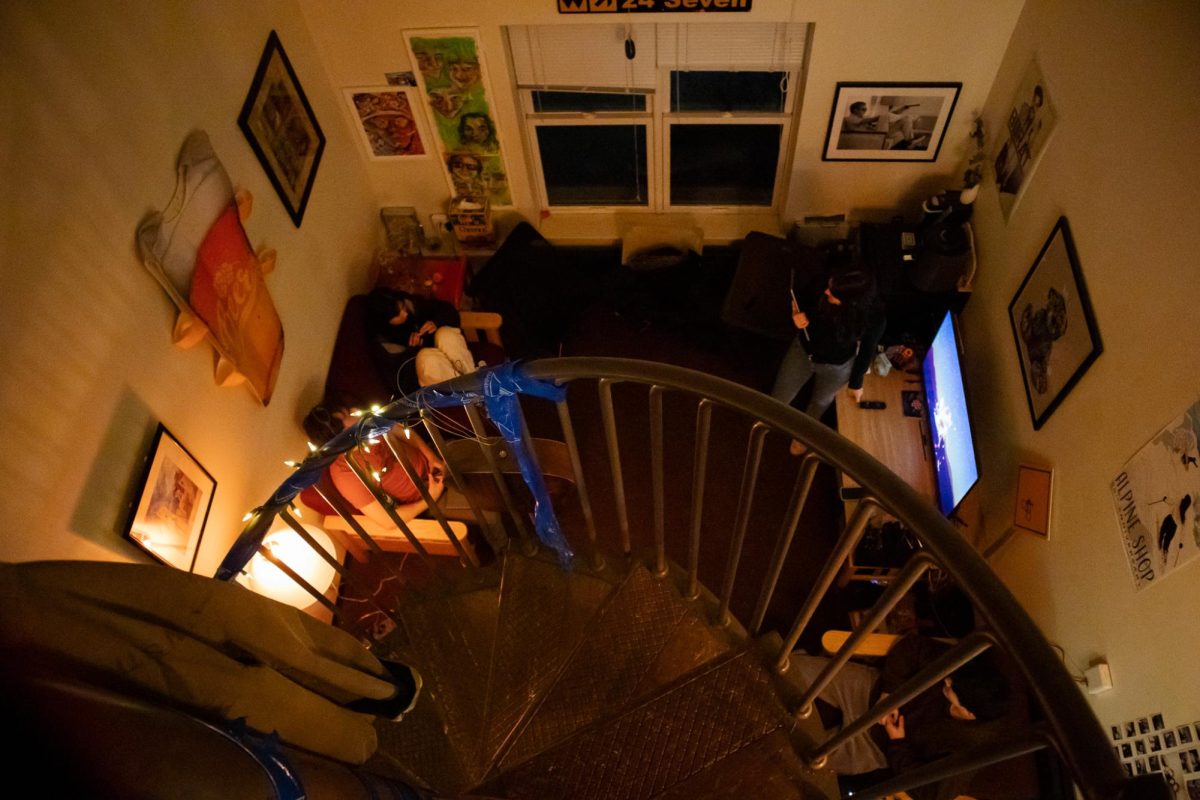Ira Allen, a prominent figure in Vermont history, can not be labeled easily-unlike his brother Ethan. Ethan is seen today, quite accurately, as a fighter, a drunkard, a leader of the common man, and an everyday man himself or just, “A good ol’ Vermon’er.”
Ira on the other hand founded a university, yet was uneducated; was a homey family man, yet was comfortable in the presence of aristocrats and kings; was a great believer and fighter for equality yet held almost 100,000 more acres of land than anyone else in Vermont (he had 120,000 acres compared to the average of 400). Ira was not a simple Vermonter.
Ira first came up to northern Vermont with his cousin Remember Baker during the summer of 1772 by floating up Lake Champlain in a small raft they had built.
Life was simple. They camped out at night, and during the day surveyed the land on the Eastern shore of the Lake Champlain Valley. Other days their time was spent beating up and kicking out the hated (New) Yorkers from the land he was laying claim to. Ira was only 21 years old.
After obtaining large amounts of land (legally or illegally was never quite clear in those days) he began to strongly endorse the settlement of the Burlington area. Particularly because it was his land he now wanted to sell. The best harbor on Lake Champlain is inarguably Shelburne Bay, so why did Shelburne not become the major metropolitan center in Vermont? Because Ira marketed his land in Burlington better.
By 1777, he was becoming an important figure in Vermont politics, helping to draft the Vermont Constitution-the first constitution to outlaw slavery and grant universal male suffrage-and playing an active role in making Vermont the 14th state. Ira had a dream of Burlington becoming a major commercial center for the surrounding farming land and a major trading partner with Canada.
He wanted Burlington to be a great city, thus he petitioned to have the state’s university here. There were other bids to start UVM in different parts of the state, but Ira pledged the highest monetary donation (money that he didn’t actually have, or ever would have), making Burlington home to the state university.
By 1795, Ira decided that the key to his and his family’s fortune lay in trade with Canada. He traveled to London to lobby for a canal to connect Lake Champlain with the St. Lawrence. His attempt failed, so he turned to his back-up plan; head to France, get 20,000 muskets, return to Vermont, then take over Canada. This almost worked. He obtained the guns, but on his return voyage he was stopped by the British. He was briefly put in an English jail, then sent to one of the worst jails in Paris for the remainder of his incarceration. During his three year sentence he wrote the first history of Vermont.
By 1801, Ira was back in the United States, where his commercial empire had fallen apart in his absence, all but one of his four brothers had died, and he was no longer held in the high esteem of other Vermonters.
He was a broken man.
In January of 1814, he was given a pauper’s burial in Philadelphia.
A revolutionist and an opportunist; a leader and a loser.
Walt Whitman once said, “Do I contradict myself?/Very well then I contradict myself,/(I am large, I contain multitudes.)”
















